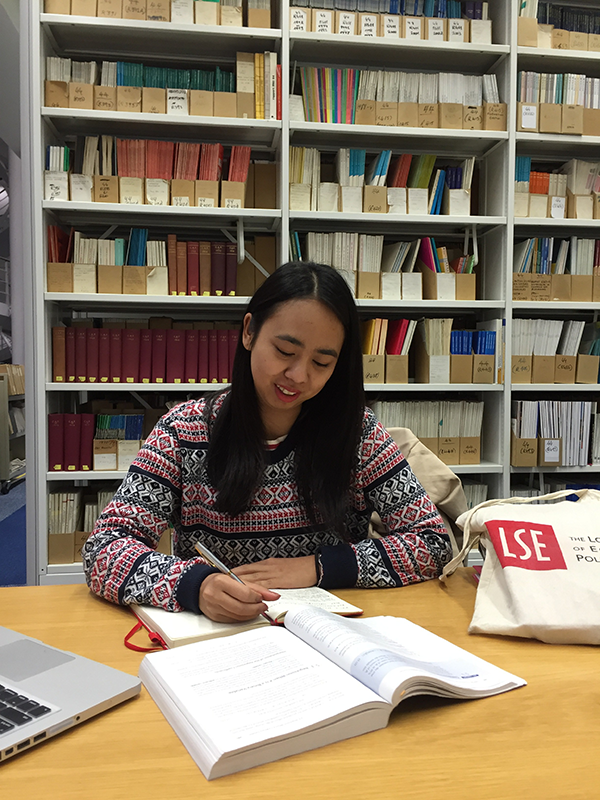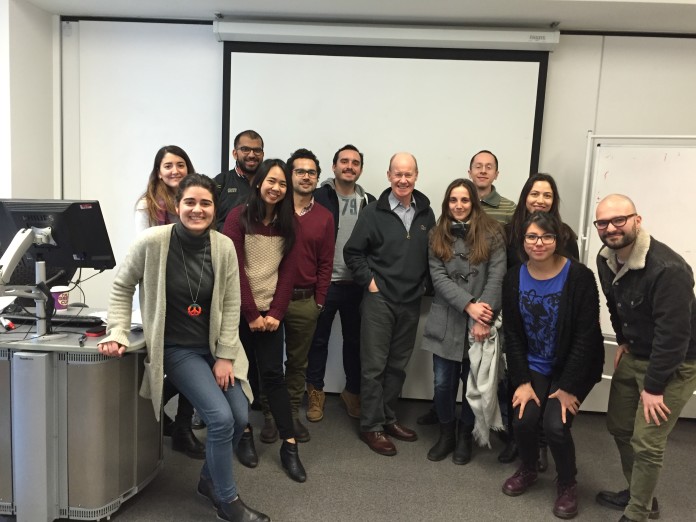Going to a graduate school abroad can be exciting and nerve-racking at the same time. ‘What should I do in order to excel academically?’, you might wonder. Our contributor Amirah Kaca Sumarto, alumni of the London School of Economics and Political Science, shares some essential insights and resources to help us follow in her successful footsteps!
When meeting students who are about to begin their graduate study, I usually get bombarded with questions, ranging from how to find housing to how to get a distinction mark (which I wrote about here). Most importantly, I also get asked about what one must learn before starting their graduate study.
The last one I get specifically from incoming students of the same program that I did a few years ago (Master of Public Administration at the London School of Economics and Political Science/LSE). At first I recommended readings and materials that were highly related with the courses that they would be taking. However, the more I thought about it, I figured that the things that they (or anyone who are about to do graduate study) need are a lot more basic.
Now, whenever I get the question “What can I start learning before commencing my study?”, I answer it with three things: learn how to learn, learn how to read, learn how write. For anyone who thinks that they have mastered those three things after years of schooling, starting from kindergarten all the way up to university, let me tell you that you can never stop learning them.
This is especially important for students who are first-timer in studying abroad. A new educational experience in a foreign university can come as a shock to many who have only been exposed to the Indonesian educational system. In this article, I will elaborate more on the three things you must learn and some resources I wished I had found before the start of my study.
- Learn how to learn
We are used to learning about various things, but have we actually learned how to learn? Learning is a skill that we can always improve. There are techniques to ensure that you approach your learning activities in the most effective and efficient ways.
I found an online course titled “Learning How to Learn: Powerful mental tools to help you master tough subjects” (https://www.coursera.org/learn/learning-how-to-learn) long after I graduated with my master’s. I wish I had found it long before then, maybe even during my high school days. The instructors of the course, Dr. Barbara Oakley and Dr. Terrence Sejnowski, explain some science-backed techniques to help you learn difficult concepts successfully. Among the things that you will learn are the neuroscience behind how the brain grasp abstract concept, various memory techniques, the causes of and the fix to procrastination, and the importance of sleep.
Another resource that I found valuable is a guideline on how to revise and plan for exam by Helen Green at the LSE (https://info.lse.ac.uk/current-students/lse-life/resources/podcasts/revising-and-preparing-for-exams).

- Learn how to read
If you are embarking on a graduate study in social science, expect to receive a never-ending list of readings. Reading at a graduate level is not as straightforward as going through words by words; to excel, you need to explore and form ideas. Thus, you would need to upgrade your analytical reading skills to better select, understand, retain, and connect information.
Many Indonesian students fall short of analytical reading because the public educational system doesn’t really teach us how to digest and critique readings well. To improve your analytical reading skills, I recommend “How to Read a Book” by Mortimer Adler. If you want a shorter introduction on how to improve your reading skills, this article (https://fs.blog/reading/) by Shane Parrish of Farnam Street Blog can be a good start.
When I was at the LSE, I attended workshop sessions titled “Reading for academic purpose” and “Making effective notes” by Helen Green and they totally changed how I approach my readings. If you are not at the LSE, you can listen to the sessions as podcasts here (https://info.lse.ac.uk/current-students/lse-life/resources/podcasts/reading-for-academic-purposes) and here (https://info.lse.ac.uk/current-students/lse-life/resources/podcasts/making-effective-notes-from-your-reading)

- Learn how to write
Just like reading, writing is something that sounds very straightforward but actually difficult to do properly. To excel in your study, you must be proficient in academic writing. Just like analytical reading, I have found that many Indonesian students are lacking in academic writing due to insufficient training provided in the public educational system.
There are plenty of books on academic writing, but most universities offer free sessions for new students. Sometimes they are mandatory, other times they are optional. My advice to you: Do not skip the optional academic writing class! I have seen many friends who ended up forgetting and skipping academic writing class because they were too busy with mandatory courses. However, once these mandatory courses gave them a writing assignment, uh oh, they were struggling.
I have to admit that I almost skipped these classes myself, as I was highly confident of my English ability. But even if you are like me and you believe you can speak English like a native, I can assure you that you will always gain some benefits from attending these classes.
Another tip related to writing is to finish your writing assignment three days before the deadline. That way you can get others to read and review your writing. I used to do this so I had time to use a one-on-one essay review session provided by the university. Check if your university offers this service too.
I hope you find the suggestions and resources above helpful. I believe that these skills will not only help you excel in university, but also help you go far in life wherever you are.
Photos provided by author.







